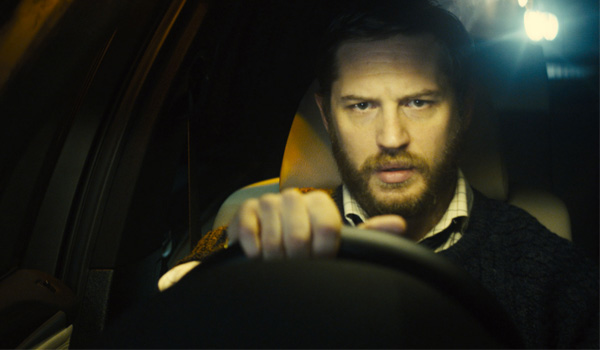
En garde: Northern Colorado clubs keep fencing, chivalry alive – Longmont Daily Times
April 27, 2014
The War On Food: New Government Report Wants Meat And Dairy In Europe …
April 27, 2014French producer Luc Besson’s transformation of the action genre over the past couple decades has advanced the B movie esthetically and politically. Through such stylized productions as the two very popular Taken and Transporter series, Besson unpretentiously reflected cultural changes in post-colonial Europe. His crime and espionage tales survey a fantasy ideological landscape that recognizes terrorists among transcontinental natives along with mission-driven American visitors who move from isolationism to updating two-fisted Humphrey Bogart-like heroism. Besson also ingratiates Third World and Eastern European immigrants to the genre as in 2004’s District B-13 (originally titled Banlieu B-13) which is now problematically adapted to American turf as Brick Mansions.
Outside Europe, Besson’s genre expertise and realpolitik translate poorly. Brick Mansions cannot convey the anxious need for self-determination – the true secret of action movies’ worldwide audience appeal — that District B-13 expressed through its star David Belle. As originator of the French gymnastic form Parkour, military-trained street artist Belle devised a sport to scale the rising, sprawling obstacles of urban environments using aggressive, audacious gamesmanship. Belle’s tough, improvisatory art idealized Besson’s politically motivated action cinema same as Jason Statham in Transporter and Liam Neesom in Taken. But relocating Belle’s homegrown aggression to famously dystopic Detroit with its drug epidemics and scaled-back police and fire departments — introduced in a faux news broadcast as “one of the most dangerous cities in America” — loses significance and credibility by emigration.
Slotted into Brick Mansions’ story of class and race segregation, Belle and Besson’s affinity with the frustrations inside Paris’ ethnic suburbs clashes with the complicated history of American urban demographics and the political and economic failure of our post-industrial cities. Brick Mansions’ slow-build plot about a business-executive-type mayor’s plan to demolish Detroit’s partitioned housing projects (the brick mansions) along with their impoverished inhabitants (referred to in knee-jerk code as “underprivileged men and women”) collapses into trite formula, echoing the old Blaxploitation movies of the 1970s but without their cultural inspiration.
Belle isn’t a grassroots hero like those ambiguous private detectives and gangsters of Shaft, Trouble Man, Slaughter, Black Caesar, etc.; he’s second fiddle to Paul Walker as a pure-bred cop fighting corruption and third in audience appeal to rap star RZA, who updates George Raft’s scowl playing an ex-soldier turned arms and drugs dealer. RZA quickly changes into another knee-jerk code word: community activist. If this isn’t the same old Black-exploitation then it’s just craven, unconvincing commercial exploitation. For the first time Besson, the alert, stylish and subtle socially conscious producer offends the political awareness he shares with his global audience.
Brick Mansions does not engage in the same kind of political condescension as George Clooney and Matt Damon films — the presence of the late Walker, a handsome, shining Everyman, guarantees genuinely populist empathy those card-carrying liberals lack — but this film’s shallow social sentiments are an affront to political reality. (Besson’s at his post-9/11, action-comics best when pasty-faced villains describe an explosive weapon: “We prefer ‘device;’ the word ‘bomb’ has negative connotations.”)
Brick Mansions flubs American domestic politics when it avoids making any reference to Kwame Kilpatrick’s heartbreaking ethnic and political betrayal of Detroit or the devastating legacy of the 1940s redistricting known as “The Detroit Plan” which negatively affected that city’s future development. Instead, concluding images of a peoples’ riot (previously unseen citizens storming a police precinct) are a different insult than condescension; it displays disinterested narrative haste and plain sociological ignorance. Anyone who’s enjoyed the immediate sociological impact of Taken, Transporter 3, From Paris with Love or Angel-A knows Besson is too savvy to treat the U.S. as just another banlieu.
***
Paul Walker’s running, leaping, fighting and sincerity weren’t enough to save Brick Mansions but it reminded me that his previous film, the one-man existential action film Hours (about a man saving his newborn infant during a power outage) was one of his best — next to his role in Wayne Kramer’s Running Scared, the phantasmagoric crime movie dealing with fatherhood, immigration and the Meth scourge that a more robust film culture would have made more popular than TV’s Breaking Bad. Audiences related to Walker — who died in an auto accident last November — with a sense of common guy intimacy.
That loss seemed unrecoverable until seeing British actor Tom Hardy in Locke.

Locke is also a one-man existential action film about a contractor caught between his professional duties building the Empire and his obligations as a husband, a father and a flawed gallant who must do right after philandering. Written and directed by Steven Knight (Amazing Grace, Dirty Pretty Things), Locke resembles Hours as a portrait of contemporary man in ethical crisis. Less frenetic than Brick Mansions, it’s closer to the radical formal experiment of Marguerite Duras’ on-the-road essay Le Camion.
Between shots of the nighttime English motorway (perhaps a few too many star-filter shots of headlights and streetlamps as transitional devices), Hardy summons stages of a man coping with his circumstances through cellphone conversations with off-screen voices. Hardy, an actor with matinee idol appeal, is always pleasant to watch, but viewers become closer listeners, too, swimming in Hardy’s melodious vocals. He echoes the greats–Gielgud, Richardson, Harris, Scofield, Finney and is equal to them in exhibiting the range of British character from working-class ambition to middle-class responsibility.
As Locke manages several out-of-control situations (including a nose cold) he speaks with eloquence and intelligence and thoughtful deliberateness. This foreshortened drama is a theatrical feat like Cocteau’s famous The Human Voice, but it hews to the real-life necessity of a man’s moral code. Everyone considers Locke “the last man on earth I thought would…” and he struggles simply “to take care of my f— ups!”
Going beyond himself, Locke advises a co-worker about the public project he jeopardizes, extolling “The piece of sky we are stealing!” In what is essentially a movie about mankind’s ambition, Hardy and Knight convey that drive better than Aronofsky’s Noah and at least as well as Paul Walker did at his best. Walker and Hardy would be Oscar winners if today’s film culture appreciated the way they deepen our appreciation of humanity.
— Film critic Armond White is author of The Resistance: Ten Years of Pop Culture That Shook the World and the forthcoming What We Don’t Talk About When We Talk About the Movies.


